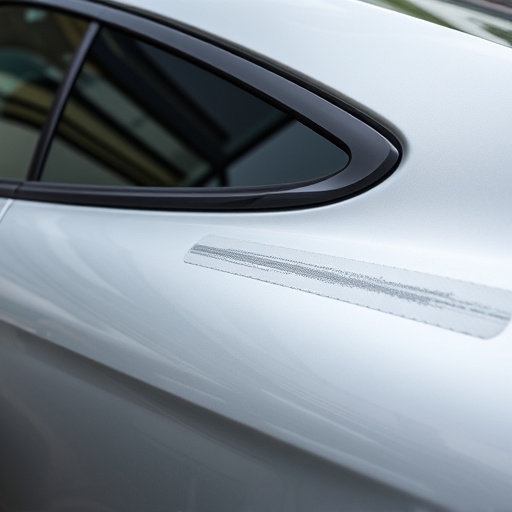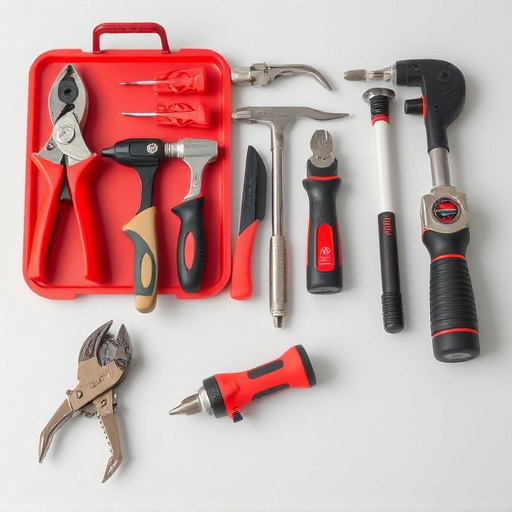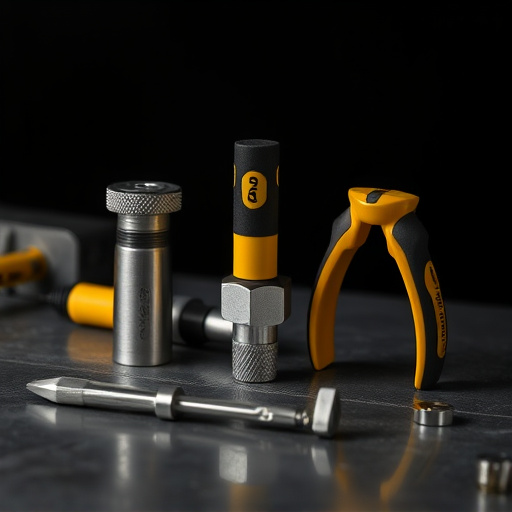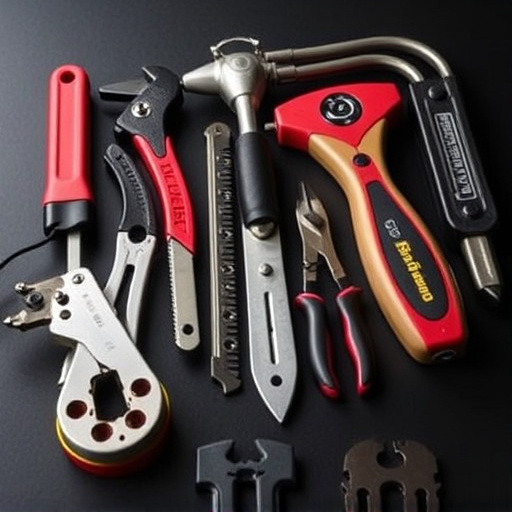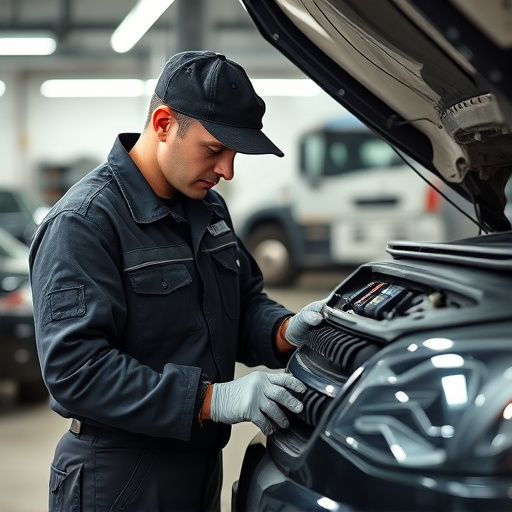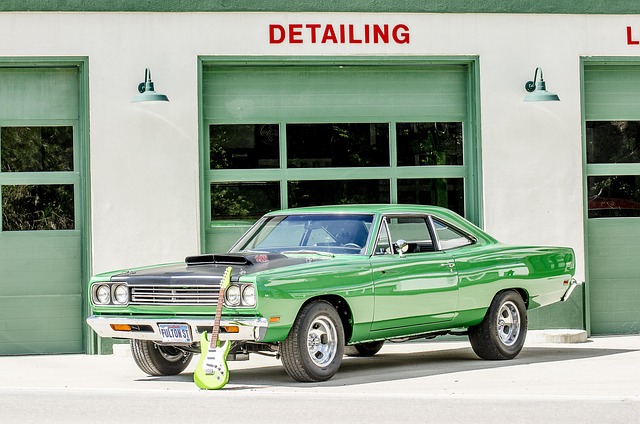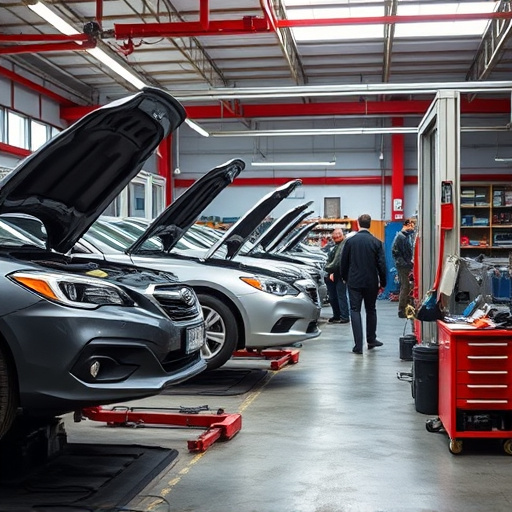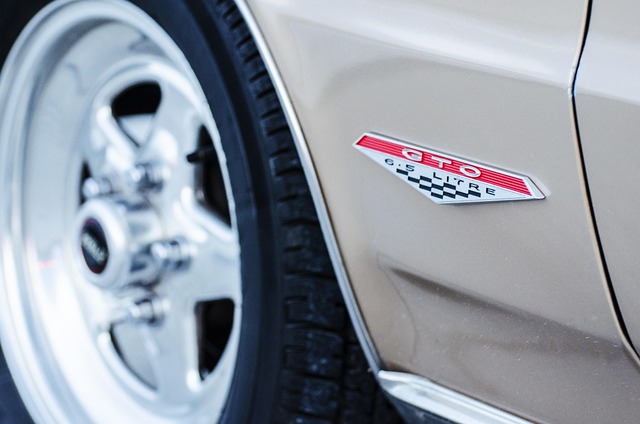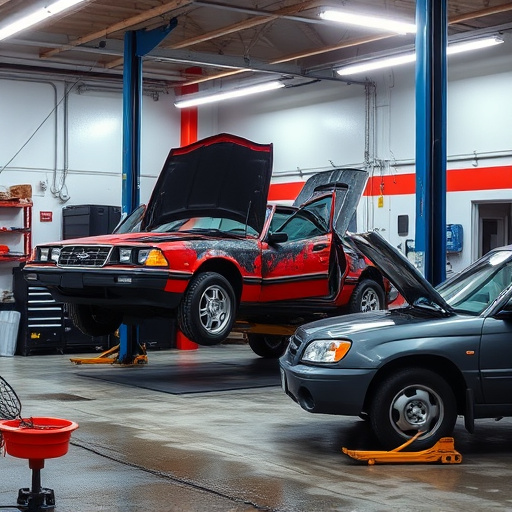Collision repair downtown options balance accessibility and cost. Mobile services offer flexibility but limited tools, while downtown shops provide specialized care at higher costs. Customers prioritize quality and turnaround time, with mobile repairs excelling in complexity and specialty parts, while downtown centers may be faster for minor issues. The choice depends on vehicle needs, budget, and personal preference. Researching and requesting quotes from both ensures an informed decision tailored to specific requirements.
In today’s fast-paced world, convenience is key. One area where this is particularly evident is collision repair. This article delves into the pros and cons of mobile vs. downtown collision repair services. We explore critical factors such as accessibility and convenience, cost implications, and the impact on customer satisfaction. Understanding these differences is essential for folks navigating the world of collision repair, especially when prioritizing top-quality service. By comparing mobile and downtown locations, you’ll gain valuable insights to make informed decisions.
- Accessibility and Convenience: Mobile vs Downtown Locations
- Cost Implications: Comparing Repair Expenses in Different Settings
- Quality and Turnaround Time: Impact on Customer Satisfaction
Accessibility and Convenience: Mobile vs Downtown Locations

Accessibility and Convenience play a significant role when comparing Mobile collision repair services to downtown locations. On one hand, downtown collision repair centers are easily accessible for many drivers as they are often strategically located in bustling urban areas. Customers can simply drive into these facilities, drop off their damaged vehicles, and have them repaired without the need for any further arrangements. This is particularly convenient for those who rely on public transportation or have limited mobility options.
In contrast, mobile collision repair offers a level of flexibility that downtown locations can’t match. Mobile auto body repair technicians come to the customer’s location, be it their home or workplace, saving them the hassle of transporting their vehicle. This is especially beneficial for busy individuals who have limited time and prefer not to take their car to a repair shop. However, accessibility might be an issue in remote areas where mobile services may not be readily available.
Cost Implications: Comparing Repair Expenses in Different Settings

When considering collision repair options, the choice between mobile and downtown services has significant cost implications. Mobile repair units often charge less due to reduced overhead costs associated with a physical shop location. This can be especially attractive for minor repairs or when dealing with tight budgets. However, for complex vehicle restoration work, downtown collision repair centers may offer more specialized equipment and skilled technicians, justifying potentially higher prices.
Comparing auto repair near me options, it’s clear that downtown facilities typically cater to a broader range of vehicle makes and models, ensuring they have the necessary tools and expertise. On the other hand, mobile services excel in convenience, saving customers time and effort by coming to them. The cost of each option depends on various factors, including labor rates, parts, and the extent of repairs needed, making it crucial for consumers to get quotes from both types of providers to make an informed decision that aligns with their vehicle’s needs and financial capabilities.
Quality and Turnaround Time: Impact on Customer Satisfaction

When comparing mobile collision repair services to downtown auto shops for your vehicle’s needs, one key aspect that significantly influences customer satisfaction is quality and turnaround time. Mobile repair teams often boast higher standards of quality due to their need to maintain a strong reputation in a competitive market. These professionals are typically well-equipped and highly skilled, ensuring precise auto body repairs and bumper repairs, leaving minimal visible signs of the collision.
In terms of turnaround time, downtown collision repair centers might have an edge for simple fixes, as they can easily access inventory and resources. However, for more complex cases or when specialized parts are required, mobile services excel at expediting the process. Prompt and efficient auto maintenance is a significant draw for customers who value their time, ensuring their vehicles are repaired swiftly without compromising on quality.
In considering the pros and cons of mobile versus downtown collision repair, it’s clear that both options have unique advantages. While downtown locations offer accessibility and a vibrant business ecosystem, mobile services bring convenience and personalized attention to clients’ doors. Ultimately, choosing between the two depends on individual needs and preferences. For those prioritizing flexibility, mobile collision repair stands out; for others seeking a dynamic urban environment, downtown shops excel in providing efficient, high-quality collision repair services.

